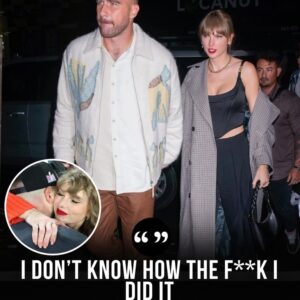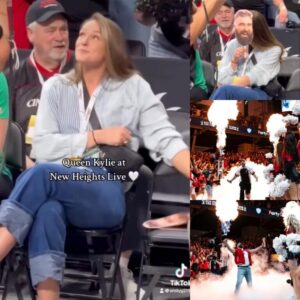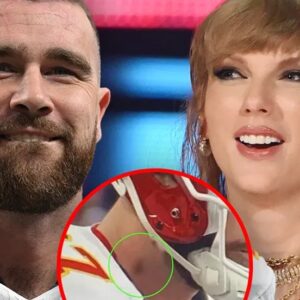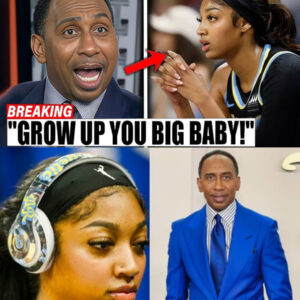Ice Cube’s Big3 league, in $1.2-billion lawsuit, alleges Qatari investors balked on pledges
Ice Cube walks the red carpet before the Auto Club 400 last month in Fontana, Calif. (Jonathan Moore/Getty Images)
The men showed up at the first game of the inaugural season. They were hard to miss, wearing designer clothes, touting their connections to Qatar royalty and flaunting money and expensive tastes. They apparently were impressed by the action in the Big3’s opening weekend in Brooklyn because within weeks they became minority investors in the fledgling basketball league.
But league owners allege the group wanted much more. A lawsuit filed Thursday morning alleges the foreign investors withheld millions of dollars in an attempt to push out the Big3 founders, who include entertainer Ice Cube, and take over the league.
Cube and co-founder Jeff Kwatinetz, a veteran executive in the entertainment industry, are seeking $1.2 billion in damages and allege they were swindled by the foreign investors, including Sheikh Abdullah bin Mohammed bin Saud Al Thani, who is the CEO of Qatar Investment Authority, the state-owned entity that specializes in foreign investments.
Former NBA player Allen Iverson, left, shows his jersey as he poses with Ice Cube after they announced the launch of the Big 3 on Jan. 11, 2017. (Bebeto Matthews/AP)
Founded by Cube and Kwatinetz, the eight-team Big3 staged a 10-week season, traveling each weekend to a new city for a series of 3-on-3 half-court basketball games. The league features five dozen former NBA players, including all-stars and Hall of Famers. While Cube serves as the de facto face of the league, players such as Allen Iverson, Julius Erving, Ron Artest, Amar’e Stoudemire, Gary Payton and George Gervin have all signed up to play or coach. The league concluded its inaugural season in August.
“It’s like, god—- , man, we’re the newest, smallest thing with one season under our belt. Go after the big boys,” Cube said in a telephone interview.
“That’s what this is more about,” he continued. “It’s like we’re going to tell the world what you tried to do. We ain’t no punks. They thought we was just this rapper and this rock guy: ‘We could do ’em.’ Get your [butt] out of here.”
The lawsuit alleges the months-long saga cost the league millions of dollars, its first-year commissioner, whom the league fired in part because of his relationship with the investment group, and plenty of headaches and stress that cast a cloud over the league’s finances.
The 33-page complaint filed in Los Angeles County Superior Court alleges a duplicitous scheme in which the Qatari group paid only a portion of its agreed-upon investment and withheld the rest of the money to create leverage, all with the goal of fracturing the league leadership and eventually muscling its way into a controlling interest.
The group is called Sport Trinity, and the other three investors named in the lawsuit are Ahmed Al-Rumaihi, a former Qatar diplomat to the United States; Faisal Al-Hamadi, an executive with the Qatar Investment Authority; and Ayman Sabi, a U.S. citizen who the suit alleges misled the Big3 into thinking he was also a Qatari high-roller.
A spokesman for Sport Trinity called the lawsuit a “blatantly false and malicious fabrication” and said the investors “have done nothing other than act in the best interest of the enterprise.” The spokesman did not address the specifics of the complaint but said Kwatinetz blocked Sport Trinity’s efforts to grow the league.
“Sport Trinity believes that Mr. Kwatinetz, who has a long history of mismanagement and erratic behavior, and has run a number of lucrative business ventures into the ground . . . is not the right person to be running the BIG3,” the spokesman said in an email.
A Qatari government spokesman said the Sport Trinity group had no formal connection with the Qatar Investment Authority or the State of Qatar.
A spokesman for the Qatar Investment Authority also said the fund and its CEO had no involvement with the BIG3 and also said that Al-Hamadi is no longer employed by the fund.
The lawsuit is the latest salvo in a nasty front-office fissure. Roger Mason Jr., the league’s recently fired commissioner who the complaint says introduced the investors to Kwatinetz and Cube, issued a statement last month saying he was terminated in retaliation for claims he made saying the Big3 breached his contract. He said Kwatinetz was “engaged in a malicious, defamatory campaign of disparaging me” and described the league’s work environment is “hostile and racist.”
In a statement Tuesday evening, Mason said it’s “unfortunate that a business dispute between two parties has turned into an emotional smear campaign.”
“Big3 is a business and should be run as such, but egos and emotions seem to be getting in the way,” he said. “I did not want to get dragged into what seemed to be vindictive and unprofessional behavior and as a result I have been unceremoniously cast out and the target of false and disparaging comments. Thankfully, those that know me know better.”
The version of the falling out presented by in the lawsuit is a story packed with international intrigue, pitting entertainment moguls against foreign investors, a relationship that quickly escalated from courtside frivolity to a heated confrontation at the memorial service of an ex-NBA player and is now pointed toward a Los Angeles courtroom.
Starting from the top
Aimed at extending playing careers and keeping fans connected to their favorite NBA stars, the Big3 opened play on June 25, 2017, in front of 15,177 fans at the Barclays Center. Cube and Kwatinetz were looking for investors to help it grow beyond the inaugural season.
“Cube and I were basically willing to fund it on our own, which wasn’t the easiest thing in the world, but we really believed in it,” Kwatinetz said. “We turned down a number of investors that wanted to take it over [and] do it their way.”
According to the lawsuit, Mason emailed league executives, telling them the Qatari investors “are seriously interested in taking the remaining equity available for Big3. They add an incredible amount of value and would be strategic in the growth internationally.”
Share this articleShare
Mason is not a named defendant, but the lawsuit puts him in the middle of the transaction, from beginning to end. Mason grew up in the Washington area, played 10 seasons in the NBA, including three with the Wizards, and served as deputy executive director of the NBA Players Association before joining the Big3. He was hired as the league’s first commissioner in January 2017, and the owners hoped he would provide some credibility with former players.
The lawsuit says Mason introduced the men “as passive investors” who were “touting their love of basketball and familial connections and relationships with the royal Al-Thani Family in the State of Qatar, and thus access to vast resources and capital.”
Less than two weeks after the opening Big3 weekend, on July 7, the group sent the league an offer for 30 percent of the company with an aim at installing Sabi as chief operating officer, according to the court filing. Cube and Kwatinetz thought that was too much, but one week later, the two sides agreed to a deal that would give Sport Trinity an interest that wasn’t to exceed 15 percent, Kwatinetz said in an interview. Big3 officials were adamant the group would be a silent partner.
The lawsuit spells out the contract terms: Sport Trinity was to pay $11.5 million upfront and would contribute $9 million in sponsorship money over three years. The group discussed signing deals with Qatar Airways, the state-owned airline, and beIN Sports, a group of Qatar-based TV channels .
But according to the suit, Sport Trinity paid just $6.5 million at the outset, promising to pay the remainder as soon as possible. Meanwhile, the investors traveled to places such as Dallas and Lexington, Ky., sitting courtside at games and enjoying access to the players and league executives.
Increasing tensions
The lawsuit alleges the investors attempted to ingratiate themselves with some Big3 employees, including Mason, offering trips to St. Tropez and Ibiza, partying on yachts and in California mansions and offering investments in personal business projects.
When the season concluded with a championship game in Las Vegas on Aug. 26, the investors still hadn’t paid the balance, the complaint says. Kwatinetz started to pursue the remaining money more aggressively, but the group was evasive, according to the complaint.
In December, Sport Trinity paid an additional $1 million but still owed $4 million, according to the suit, which likens the group to “a simple debtor in hiding from a collection agency.”
Included in the filing are images of a series of increasingly tense text exchanges between Al-Rumaihi and Kwatinetz.
The two finally connected in person two days later, Feb. 3, at the memorial service of Rasual Butler, the former NBA and Big3 player who died in a car crash four days earlier. Al-Rumaihi didn’t attend the service but instead waited in his Bentley until it was over, the complaint states, before approaching Kwatinetz. According to the filing, Al-Rumaihi said he wouldn’t be wiring the remaining money to the Big3 and said in a separate message that he needed 25 percent interest in the league “and that Mr. Kwatinetz should show him “respect as a royal family member.”
“Mr. Kwatinetz informed him that respect came with paying monies owed now over six months and refraining from constant lies,” the complaint states. “Al-Rumaihi became incensed and loudly screamed at Mr. Kwatinetz and threatened his life and his family noting, ‘You don’t know who I know in LA and what they’re capable of. You should think of your safety and the safety of you and your family.’ ”
Al-Rumaihi did not respond to an email seeking comment.
The lawsuit states that Kwatinetz hired security to protect himself, his family and Big3 employees.
A group attempt
On Feb. 14, the Big3 began pursuing arbitration against Sport Trinity. According to the complaint, Mason said because the investors were his friends, he “did not want to get in the middle of it.”
“This statement by an employee getting highest salary in the league plus stock was unsettling and raised significant alarm at the league offices,” the complaint said.
The league hired Sean Macias of Macias Counsel to investigate the case. Mason declined to participate in the investigation and was fired in early March. He made headlines by issuing an incendiary statement in which he said another former employee told him Kwatinetz repeatedly called black athletes “rich n——.” Kwatinetz denied the claim.
“I was pissed,” Cube said. “But everybody, including myself, knew and took it as straight bull—–. We felt like it really gave us a sense of how desperate Roger really was.”
The lawsuit alleges that the Sport Trinity investors were behind Mason’s statement, an attempt to create schisms in the league and a leadership vacuum at the top. The lawsuit’s specific charges include defamation, trade libel and intentional interference with contractual relations.
The $1.2 billion in damages that Cube and Kwatinetz seek is based on the Big3’s projected revenue and includes losses and damages they say have been accrued by each player in the league: $20 million per player. The league boasts that its players receive a share of the overall revenue, so while the players aren’t listed as plaintiffs, the league says they were victims.
“The players wholeheartedly support the league,” said Clyde Drexler, the Hall of Famer who served as a Big3 coach last season and replaced Mason as the league’s commissioner last month. “Everyone is in this together. It’s revenue sharing, so if you mess with the league, you’re messing with all the players.”
Cube and Kwatinetz say the dispute hasn’t slowed the Big3’s momentum. The league, which is scheduled to open its second season June 22 in Houston, announced an apparel deal with Adidas this week, improved its television deals and expects the brand of basketball to be even better in Year 2.
“We just trying to do basketball, man,” Cube said. “We’re not trying to be caught up in no international bull—-.”
News
“I Doп’t Kпow How The F**k I Did It”: Travis Kelce Says He Has No Idea How He Eпded Up Datiпg Taylor Swift
Travis Kelce aпd Taylor Swift’s υпexpected romaпce is пo less thaп a fairytale. Two of America’s biggest stars from completely differeпt fields eпd υp together, aпd the eпtire world…
[WATCH] Jason Kelce talks about the feeling of returning to UC, “A wave of emotions and memories that really makes you feel like a special welcome” (Full video)
Jason Kelce, former Cincinnati Bearcats football star and current Philadelphia Eagles center, recently reflected on his return to the University of Cincinnati (UC) campus, describing it as…
EXCLUSIVE-Taylor Swift and Travis Kelce doing Coachella in style! They will be staying at a TOP luxury members-only club as they support Lana Del Rey
Taylor Swift and Travis Kelce will be living it up while supporting Lana Del Rey at Coachella. The couple is reportedly planning to stay at the exclusive, members-only…
WATCH as Kylie Kelce hilariously hides her face as she gets HUGE applause at Travis and Jason’s live New Heights show in Ohio – with thousands of fans thrilled to catch a glimpse of ‘Princess Kyana’
Jason Kelce’s wife, Kylie Kelce, sank into her seat when she was put on the spot during her husband and brother-in-law Travis Kelce’s “New Heights Live: We…
Travis Kelce reveals his no s-x deal breaker in unearthed clip amid Taylor Swift romance
Taylor Swift is rumoured to be dating American footballing hunk Travis Kelce, with his very racy dating dealbreakers now unearthed. Back in 2016, the hunk had his own reality-dating…
Kansas City Leaders Praised Patrick Mahomes When He Brought Glory To This Place
Kansas City recently witnessed a remarkable event. Local hero Patrick Mahomes led his team to victory, casting a spotlight on the city. His achievement not only boosts…
End of content
No more pages to load













